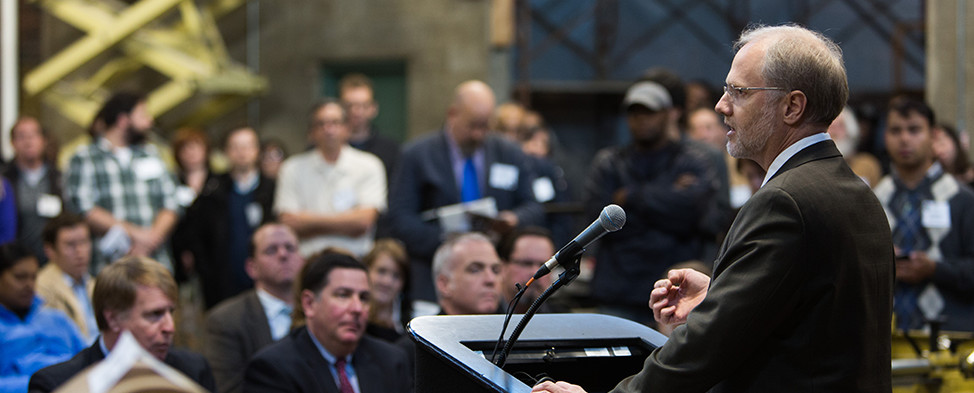What Does it Mean for America’s Nonprofit Sector to Lead Bravely In Polarized Times?

In light of challenging times, Grant Oliphant, president of The Heinz Endowments, examines the role of the courageous leader and the power to make change happen within the philanthropic field and our own culture.
What I have learned in the past year is that polarization is a powerful tool for silencing and intimidating the voices of civil society. I have heard from so many leaders who have felt pressure not to speak out even though values they consider core to their missions were under attack, because the mere act of defending those values has suddenly been make political. The only advice I could give them was to speak anyway, and many have. They understood that, for our sector, silence is damning.
A courageous leader's role, Oliphant emphasizes, is "to give hope in difficult times." That includes, he adds, the willingness to act in support of the people organizations serve.
Besides acting, Oliphant points out "we live in a disturbing era of small people. But it also struck me that we live in an era of hopeful liberators, and that the task of courageous leaders in our sector in an increasingly divided world is to be the providers of keys, to help free others and ourselves from the cages being built around us."
It's key, according to Oliphant, to really listen to each other:
Our sector has to be the bridge between worlds, between what we think we know and what other people really need and want. (...) As it happens, this is also the first and most important rule of effective social change: we have to start by getting closer and listening and learning. This is the only way we can model moving past the dualism—the divided, us-versus-them view of humanity—that most narrows our minds and shrivels our hearts and perpetuates our pain.
Image: The Heinz Endowments/ Joshua Franzos
